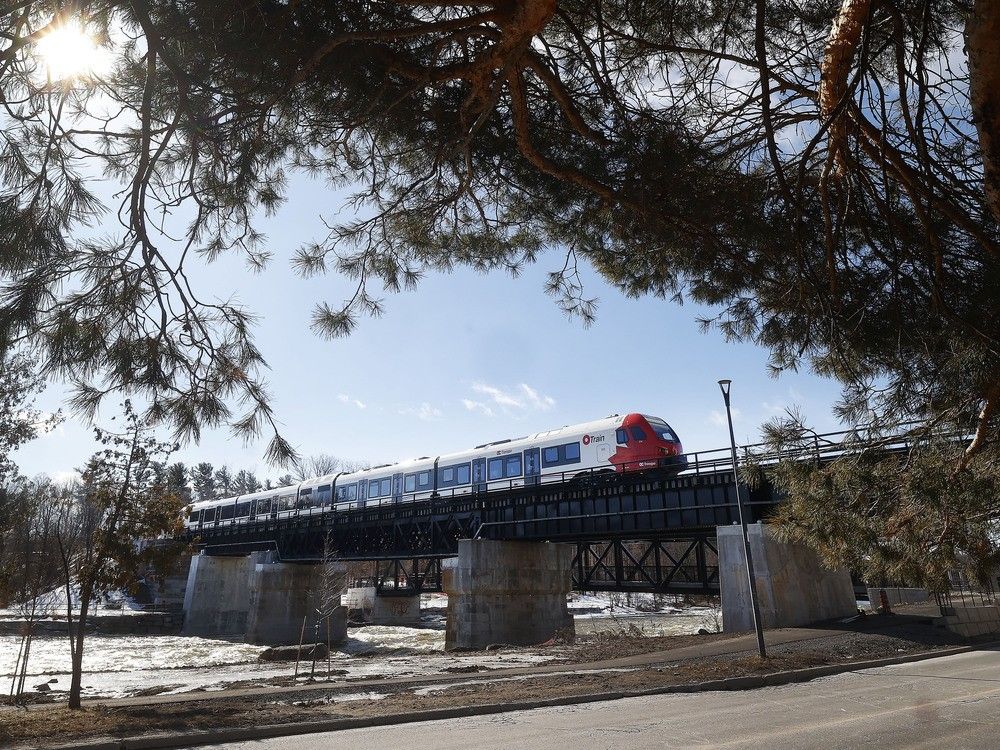
Article content
The Trillium Line LRT achieved a 98.3-per-cent on-time performance during its first full day to trial running on Monday.
That was just shy of the 98.5-per-cent score that builder TransitNEXT must achieve as a rolling average over the full 14-day trial running period, but City of Ottawa Transit General Manager Renée Amilcar said she’d take it.
“I’m very, very happy — 98.3 per cent is very good, especially for the first day,” Amilcar said Tuesday afternoon in the first daily briefing to reporters during the testing phase.
Article content
In the run-up to the trial run, TransitNEXT had achieved a 99.1-per-cent on-time performance over 10 days. Monday’s 98.3 per cent score “was an excellent grade, (but) I would have liked 100 per cent, just like in school,” Amilcar quipped.
A minor brake problem delayed the deployment of one of the Trillium Line’s nine trains in the morning, while two other trains experienced problems with the CCTV cameras showing the operator the platforms and doors, said Richard Holder, director of rail construction for the city.
According to the scoring system, “on-time” performance means trains must depart within 30 seconds of schedule from each terminus station: Bayview and Limebank for Line 2, and South Keys and the airport for Line 4.
The rolling average means a slight shortfall one day can be made up the next day if that 98.5-per-cent threshold is exceeded. But one bad day — say an on-time performance of just 73 per cent — would require at least another two weeks of trial running to bring the rolling average back up to passing grade.
In addition, officials are also monitoring about 18,500 devices and systems in the daily performance log, Holder said.
Article content
“If we see we’re having particular issues with some devices or sub-systems, then we will work with TransitNEXT to ensure every issue will be fixed prior to substantial completion,” he said.
Four third-part overseers are monitoring the testing, including AW Hooker, an independent certifier that will validate the trial running results.
Once the 14-day trial run ends, the city will begin another seven days of testing — “daily operation and maintenance scenario evaluations” — to see how the system performs under various situations, such as a jammed door or an immobilized train. That assessment isn’t part of the pass/fail performance standard.
If all goes well, the 14-day trial run will end on Oct. 21 and the second phase of testing will end Oct. 29. It would then take another couple of weeks to get operation licences and approval, meaning the Trillium Line could begin carrying passengers in mid-November.
Share this article in your social network